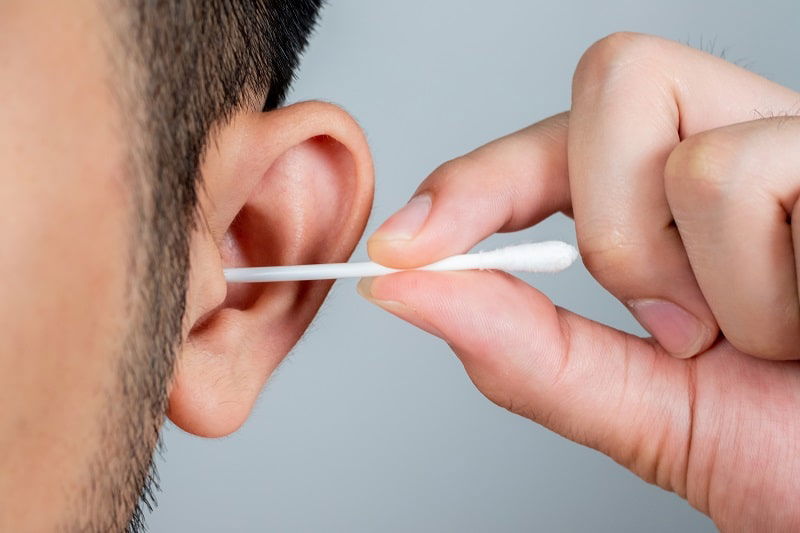The human body is truly an amazing thing.
- It has the ability to repair itself.
- The human nose can differentiate between 1 trillion various smells.
- We can even create a whole new life.
We’re also equipped with a natural way of cleaning our ears. Earwax. It’s kind of gross, kind of irritating, and can be kind of troublesome. Unfortunately, many people don’t know just how troublesome it can be to try to remove it.
For many years people have used cotton swabs, keys, bobby pins, and all manner of small objects to poke and prod into their ears when they feel that the waxy buildup is becoming bothersome. Though sold throughout the world, cotton swabs, buds, or commonly known by one brand name, Q-tips, are not a good option for wax removal.
That goes two-fold for those living in Scotland. The UK country has won the battle to have these small plastic cotton buds banned in their country. Over 1.8 billion of the popular multiuse items are used each year throughout England, along with roughly 316 million plastic stir sticks and 4.7 billion plastic straws.
According to Roseanna Cunningham, Scotland’s environment secretary, “This ban builds on work already underway to address Scotland’s throwaway culture.”
“Single-use plastic products are not only wasteful but generate unnecessary litter than blights our beautiful beaches and green spaces while threatening our wildlife on land and at sea,” says Ms. Cunningham.
She added that, “This ban builds on work already underway to address Scotland’s throwaway culture, and we will continue to take action on other problematic items in the coming years as part of our efforts to reduce harmful plastics and single-use items, protect our environment and develop a thriving circular economy.”
The move to ban these plastic-stemmed sticks is more of an effort to cut down on the plastic waste that is washing up on the beaches and shores around the UK than in an effort to keep people from shoving them into their ears and thus impacting earwax. In response to the ban, companies such as Johnson & Johnson and Unilever have made the move from plastic to biodegradable paper sticks to keep up with changing regulations and keep customers happy.
According to an article on the BBC website, “Cotton buds are some of the most pervasive forms of marine pollution, so a ban is a very welcome step and one that we hope other countries will follow,” said Lang Banks, director of World Wide Fund for Nature in Scotland.
“We know plastic is suffocating our seas and devastating our wildlife with millions of birds, fish, and mammals dying each year because of the plastic in our oceans. Plastics are also finding their way into the food we eat and the water we drink, so saving our oceans will require further ambitious action from governments, industry, and consumers.”
While these plastic products are a large problem for our environment, the use of cotton swabs to clean the ear is also an issue. As the swab is inserted into the ear, it can shove earwax deeper into the ear canal which can cause a buildup of impacted wax. It must then be removed by a doctor or hearing health professional in a safe manner such as irrigation or with small instruments designed to loosen and pull the wax out.
It can also cause problems if the swab comes loose from the stick. There have been cases documented where the cotton separates from the stick and remains lodged inside the ear canal. This can bring about multiple symptoms from earaches to headaches to full-on infections.
The cotton from the swabs can also leave microscopic cuts and abrasions inside the ear canal which can lead to bacteria entering this opening and causing bacterial infections. Since the ear is designed to remove waxy buildup naturally, there is no need to take a chance on any of these outcomes.
Simply using a warm, damp cloth to clean the outer surface of the ear while showering should be enough to remove any unsightly wax. Generally, the human body heats up enough to melt the wax that builds up inside the ear canal and when you shake your head or lay down on a pillow, these movements or positions allow the wax a clear path to slide or roll from its place within the ear.
For a select few, the buildup can be a regular problem, whether due to the shape or size of the ear canals. In this case, a visit to your hearing health professional can alert you to the likelihood of a plugged canal and they can either remove it as an outpatient procedure or offer options for home removal such as irrigation.
For those living in Scotland, the fact that these plastic sticks have been banned is a major plus for more than just hearing health. Their environment will be a cleaner, safer place to live, for both humans and wildlife.




